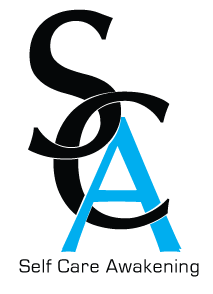Why is an Air Purification System Important?
To Breathe is to live!
Americans, on average, spend approximately 90 percent of their time indoors, where the concentrations of some pollutants are often 2 to 5 times higher than typical outdoor concentrations. People who are often most susceptible to the adverse effects of pollution (e.g., the very young, older adults, the infirm, and people with cardiovascular or respiratory disease) tend to spend even more time indoors.
Indoor air pollution has increased in recent decades due to various factors. These include an increase in the use of synthetic building materials and furnishings, and the proliferation of chemically-based personal care products, pesticides, and household cleaners. Airborne allergies can affect people all year round and are particularly prevalent in spring and summer, when there is an influx of pollen in the air, but also in autumn with an increase in dampness and molds, and in the winter when we spend the most time indoors in housing which is well-sealed for energy efficiency, reducing ventilation.
Health effects associated with indoor air pollutants include irritation of the eyes, nose, and throat, headaches, dizziness, fatigue, respiratory diseases, heart disease, and cancer. Tobacco smoke, insect droppings, dust mites, mold, pet dander, artificial fragrances, carpeting fumes, and more can cause serious health problems. Respiratory ailments can range from sneezing to full-on asthma, bronchitis, emphysema, and COPD.
“Cleaning up the air we breathe prevents non-communicable diseases as well as reduces disease risks among women and vulnerable groups, including children and the elderly...”, says Dr. Flavia Bustreo, WHO Assistant Director-General Family, Women, and Children’s Health.
Air as nature intended.
Air in natural settings such as forests, waterfalls, and the ocean has a soothing, relaxing sensation. In forests, the Japanese call this ‘Shinrin-yoku’ or “forest bathing”. This feeling in part is caused by the abundant negative ions found in natural environments. Negative ions are particles in the air that carry a net negative electrical charge. Research suggests that negative ions contribute to the sense of well-being that we get from breathing fresh, clean air.
Better for you, better for our environment.
Nikken offers high-quality HEPA air filtration with the KenkoAir Purifier® as part of our Wellness Home strategy. The KenkoAir Purifier® is portable and exceptionally quiet and exceeds the measured efficiency of capturing up to 99.97% of 0.3-micron particles in the air. It is Energy Star qualified, which means it is 35% more efficient than standard models and saves a minimum of 215 kilowatt-hours per year. In addition to replaceable filters, its pre-filter is re-usable, and the unit is made with recyclable materials to further reduce its carbon footprint.
Unlike typical air filters, this advanced system helps generate negative ions like those found in natural environments, such as in forests, waterfalls, or the beach. The KenkoAir® Purifier has built-in ozone fee Negative Ion Technology and releases 2 million negative ions per second. The negative ion generator does not produce ozone as seen with many other air filtration systems on the market.
In a 2010 study, scientists observed the effect of negative ions on physiological and psychological stress during a two-hour computer operation. When monitoring heartbeat during the experiment they found that, where the participants were exposed to negative ions, there was an improved change in heart rate from before and after exposure. There was also a significant reduction in computer-orientated stress and psychological stresses. On the other two test groups – a control group and a placebo group – they did not record any significant change in the parameters tested.
We breathe without even thinking, (approximately 23,000 times a day) as such, air wellness is a simple solution for a huge problem that fits into and compliments the Nikken Wellness Home, allowing us to enjoy a more natural, pollutant-free environment.
“Cleaning up the air we breathe prevents non-communicable diseases as well as reduces disease risks among women and vulnerable groups, including children and the elderly...”, says Dr. Flavia Bustreo, WHO Assistant Director-General Family, Women, and Children’s Health.
Breathing cleaner air is one way we all can be Healthy by Choice. This topic will be discussed in our next Healthy by Choice Master Class. The class will cover the problem of indoor air pollution, the solution, and what and why some choices are healthier than others.
Please join us and invite guests for Air Matters on Tuesday, May 18th at 9 pm Eastern, 6 pm Pacific. Together we can all help anyone Be Healthy by Choice. To join the class, click this link, and follow the prompts, Self Care Awakening Virtual Classroom. You will need to use the password Nikken1 to join the class.
Be Healthy by Choice

